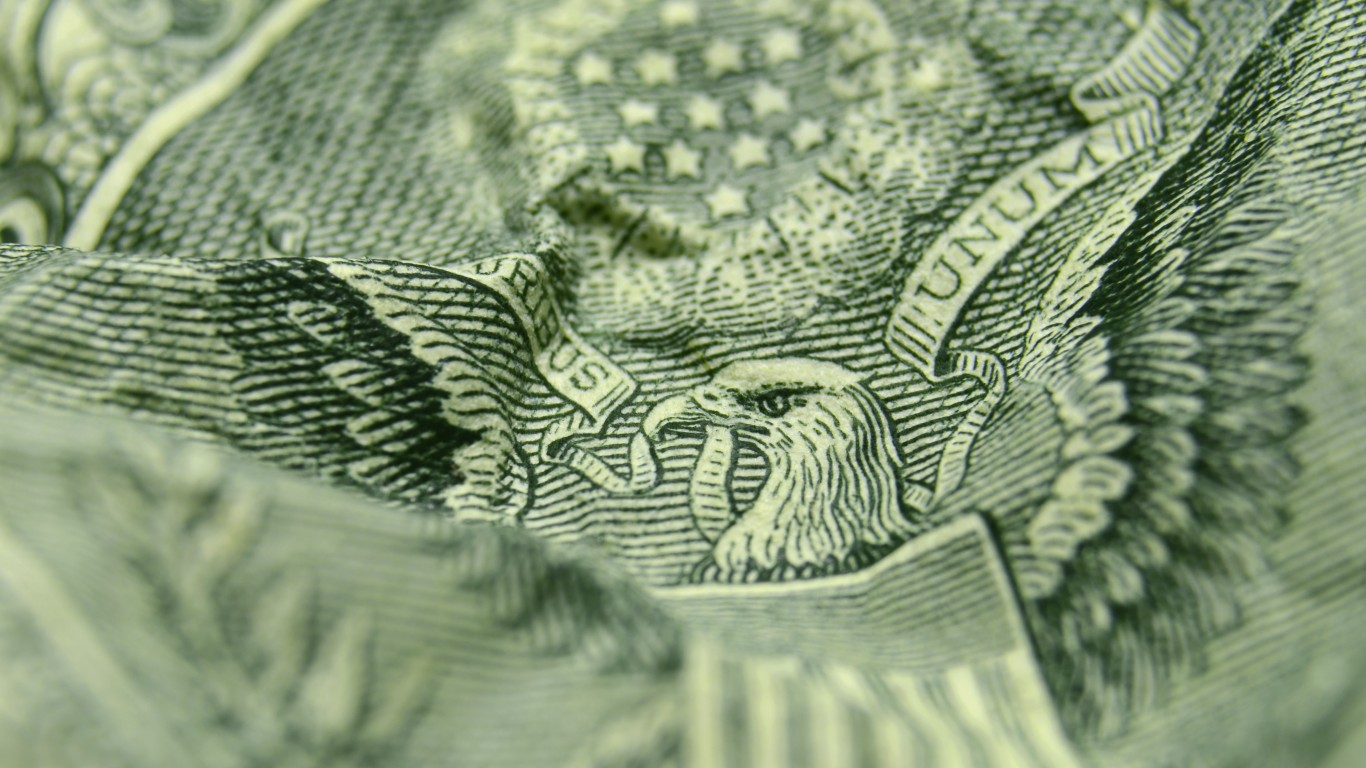
Death is certain, but what about taxes? Not always. There are many ways to whittle down those due on corporate and individual income, legal or not. By one estimate, the United States loses the equivalent of three-quarters of its federal budget deficit to unpaid taxes every year.
Tax abuse comes in two main forms: evasion and avoidance. The U.S. Internal Revenue Service defines tax evasion as a deliberate underpayment of taxes, a crime that can lead to hefty fines and even prison time. This differs from tax avoidance, the practice of legally exploiting loopholes in the tax code.
In 2020, the Internal Revenue Service issued nearly 34 million income tax penalties totaling $14.1 billion against individual and estate and trust income taxes. The largest number of censures involved failure to pay, followed by not paying enough or late payment of estimated tax. Other penalty types include delinquency, bounced checks, and inaccuracies. Interestingly, outright tax fraud made up the smallest share of the volume of IRS penalties, at just 1,330 totaling $113 million in fines.
For corporate tax evasion, the IRS issued 587,511 penalties totaling $1.43 billion in 2020, including 57 incidents of tax fraud that incurred $7.9 million in penalties. (These are 19 big companies that paid almost nothing – or nothing at all – in taxes in 2021.)
To identify the countries losing the most to tax abuse, 24/7 Wall St. reviewed The World’s Biggest Tax Offenders, a report published by the financial software company Tipalti. The rank is based on the losses to tax abuse as a percentage of total tax revenue collected. These percentages range from 4.15% to 22.26%.
Click here to see the countries losing the most to tax abuse
When it comes to tax abuse, the United States isn’t on the top list of countries losing the most, even among developed nations. For example, Germany and the United Kingdom have higher rates of tax abuse as a percentage of total tax revenue collected. Other countries with a high rate of tax abuse include Singapore and Colombia – but the worst of all is Ireland. (These are the countries collecting the most taxes.)

12. Germany
>Losses to tax abuse as % of total tax revenue collected: 4.15%
Germany loses an estimated $59 billion to tax abuse every year, not counting the billions lost to aggressive corporate tax avoidance similar to strategies deployed by large U.S. companies. Last year, the country established a website for reporting tax cheats, leading German newspaper Bild to compare the move to the practices of East Germany’s Soviet-era secret police.
[in-text-ad]

11. Indonesia
>Losses to tax abuse as % of total tax revenue collected: 4.39%
Desperate to boost government revenue, last year the Indonesian government began a new initiative to crack down on tax cheats. The world’s fourth-largest country by population has a low tax-collection rate that in 2019 was 9.8% of gross domestic product, excluding fines and adjusted for refunds, according to World Bank data – significantly below the global average of nearly 15%.

10. Philippines
>Losses to tax abuse as % of total tax revenue collected: 4.73%
In an effort to curb tax evasion, the Philippines Bureau of Internal Revenue last year increased fines and jail time for tax fraud. The maximum fine for evading taxes was increased from about $1,907 to a hundred times that – about $190,700. The minimum fine remains unchanged at about $572.

9. United Kingdom
>Losses to tax abuse as % of total tax revenue collected: 5.35%
The U.K. government estimated last year that it lost £35 billion (about $43.9 billion) to tax abuse in the 2019-20 tax year, up from a 5% shortfall in the previous year. The U.K. is struggling with its largest postwar budget deficit – almost double the gap between spending and income caused by the 2008 global financial crisis.
[in-text-ad-2]

8. Netherlands
>Losses to tax abuse as % of total tax revenue collected: 5.43%
The Netherlands, known as a global center for tax avoidance that allows corporations and the ultra-rich to dodge taxes in their own countries, also grapples with tax abuse from its citizens. Among measures the Dutch government deploys to fight tax cheats is a network of reporting hotlines (meldpunten) that collect reports by the public of suspected tax evasion.

7. Egypt
>Losses to tax abuse as % of total tax revenue collected: 6.14%
As Egypt suffers a deepening economic crisis from the global pandemic, Cairo announced last year it was increasing campaigns to go after tax cheats. A common form of tax evasion deployed by the Egypt’s wealthy is through immovable assets (land and real estate) and exploiting a lack of data and property records.
[in-text-ad]

6. Mexico
>Losses to tax abuse as % of total tax revenue collected: 6.45%
Mexico’s tax revenue is the lowest of all countries in the Organization for Economic Cooperation and Development. Over the past decade, Mexico has increased mandatory electronic invoicing through a system it touts as allowing for real-time audits. A common tax-evasion tactic in Mexico is for businesses to create false invoices, often to ghost companies.

5. Angola
>Losses to tax abuse as % of total tax revenue collected: 7.36%
According to the Tax Justice Network, Angola loses $360.7 million a year to tax abuse, equivalent to nearly a fourth of the country’s public health budget. These losses come even after Angola implemented tax reforms a decade ago that were partly aimed at fighting tax evasion.

4. Pakistan
>Losses to tax abuse as % of total tax revenue collected: 9.30%
Pakistan loses nearly Rs 310 billion ( $1.6 billion) annually to tax abuse, according to the marketing firm Ipsos. The industries rife with tax cheats include tea processing, the illicit trade in cigarettes, and auto parts.
[in-text-ad-2]

3. Singapore
>Losses to tax abuse as % of total tax revenue collected: 10.73%
Singapore’s strict legal framework makes it well-known for its cleanliness and low crime rate, but it’s rife with tax abuse. The Southeast Asian city-state loses tax revenue by not doing enough to fight against unlicensed financial institutions and undeclared bank accounts.

2. Colombia
>Losses to tax abuse as % of total tax revenue collected: 18.20%
In 2015, the OECD estimated that Colombia could increase public revenue by more than COP 15 trillion (then about $8 billion) by cutting value added tax and corporate tax evasion by half. Tax evasion in Colombia was not treated as a criminal offense until the implementation of a law in 2016.
[in-text-ad]

1. Ireland
>Losses to tax abuse as % of total tax revenue collected: 22.26%
Ireland is a well-known global corporate tax haven, costing other countries billions of dollars in lost corporate tax revenue. But the Emerald Isle is also the biggest loser in tax revenue itself due to tax abuse, including incentives to lure corporate tax havens and criminal tax evasion.
In 20 Years, I Haven’t Seen A Cash Back Card This Good
After two decades of reviewing financial products I haven’t seen anything like this. Credit card companies are at war, handing out free rewards and benefits to win the best customers.
A good cash back card can be worth thousands of dollars a year in free money, not to mention other perks like travel, insurance, and access to fancy lounges.
Our top pick today pays up to 5% cash back, a $200 bonus on top, and $0 annual fee. Click here to apply before they stop offering rewards this generous.
Flywheel Publishing has partnered with CardRatings for our coverage of credit card products. Flywheel Publishing and CardRatings may receive a commission from card issuers.
Thank you for reading! Have some feedback for us?
Contact the 24/7 Wall St. editorial team.
 24/7 Wall St.
24/7 Wall St. 24/7 Wall St.
24/7 Wall St.

